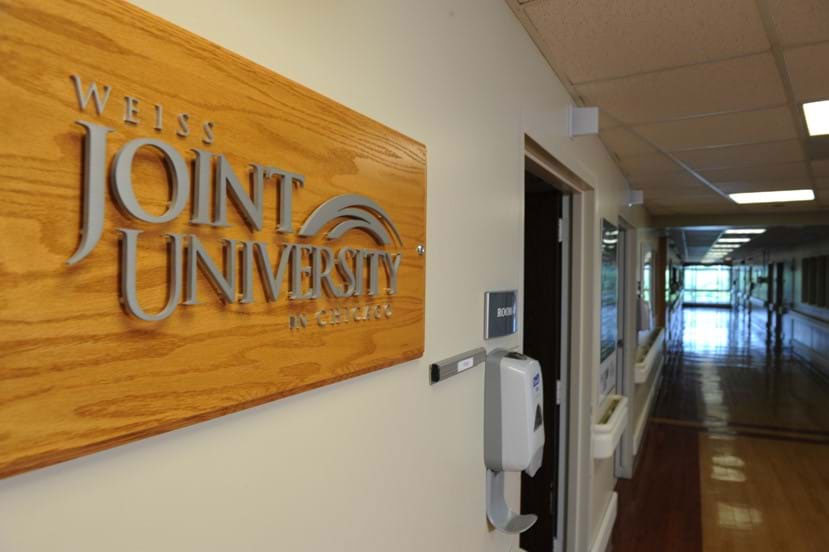When Nikki Smith had her hip replaced in January 2014, she was up on her feet and mobile in record time. She credits her speedy recovery to Weiss Memorial Hospital’s Joint University, which she attended before her surgery, for her surgery and afterward.

“Before my surgery, there was training at the university, online education and a notebook,” she says. “I learned how to prepare for the surgery and what to expect after the surgery. I got a timetable of what progress to expect and learned about the assistive devices I would need. I read the guidebook for hips over and over.”
Dr. Craig Westin, an orthopedic surgeon at Joint University, is a proponent of education. “It reduces the fear and stress of surgery. And doing training on the patient floor is crucial because then the surroundings are familiar after surgery. Education also reduces anxiety and pain. Knowing pain will be managed helps immensely.”
Prior to her first hip replacement — at another hospital — there was no education, Nikki says. “This was so much better; we all like to know what’s ahead. You need to be able to plan around what you’ll be able to do. Information is power.”
Joint University offers advanced technology and procedures for hip and knee replacements. “We restore a patient’s original pre-arthritis anatomy,” Dr. Westin explains. “The surgical approach, the size, shape and position of the artificial joints are done to match the individual anatomy of each patient.”
By restoring the original anatomy of an arthritic joint, a hip or knee replacement can feel normal, he adds. “This also leads to a faster recovery because things don’t need to be ‘stretched out’ as much with physical therapy.”
Days after she was discharged from the hospital, Nikki started physical therapy at Joint University. The hospital even provided transport, “and the bus showed up on time, every time, so that part of it wasn’t a worry. So I had nothing to be concerned about except getting well,” she says.
“The rehab was very good. It was strict, and I worked very hard at it. It was made very clear to me that I had to be a partner and do my share and not rely on drugs.” And that made her feel even better, she says. Drug-free, she felt proud of herself.
Nikki continues to attend a rehab group for people who’ve had hip replacement surgery, “which is nice as you can share experiences and notes,” she points out.
The real test of Smith’s experience came five months after her surgery when she walked from her house to The Loop, a distance of 5 miles. “I now have life beyond the surgery. I’m happy and feeling good.”
